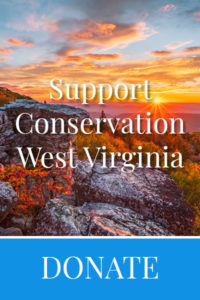Climate
It is pointless to argue about what, or who, caused our planet to begin warming at an alarming rate. The fact is that global warming is real and we can see its effects all around us.
The task for us is to find the right policy solutions that will protect our families and communities and summon the will to make the necessary changes. Imagine how Teddy Roosevelt, who established our national parks, would respond to this situation.
The next generation of West Virginians will likely face the consequences of any hesitancy to act now. The heavy rainfall events and flooding, periods of intense drought, and challenges for agriculture that we see now will get worse unless we get a handle on this problem. And the U.S. military has predicted that a warming planet will create a national security threat because of worldwide instability.
Responding to global warming will not require huge, expensive government programs. It will simply take thoughtful policy, evenhandedly administered, that will produce a reduction of carbon emissions by individuals and businesses. After all, carbon dioxide is nothing more than air pollution and we know how to deal with it. We just need to get busy.
Our Climate Platform
We support legislation that will prioritize planning and preparedness to counter the long-term threat posed by climate change to the health, safety and prosperity of West Virginians.
We support legislation that would require West Virginia to reduce substantially its carbon footprint by 2050 by capping utility emissions, requiring state vehicle fleets to purchase electric and hybrid vehicles, refurbishing state buildings to increase energy efficiency, and other practices.
We support legislation that will broaden the availability and installation of solar, wind and geothermal energy facilities in West Virginia through use of tax incentives and other means.
We support legislation that authorizes purchase power agreements between West Virginia consumers and non-utility third-party developers to construct and operate alternative energy facilities on the consumer’s property and sell power to the consumer.
2024 Climate Bills
HB 4291
Energy Efficiency Partnership Act
Allows units of local government to create partnerships with residents, and to create districts, all for the purpose of adopting measures to reduce the consumption of energy. Local governments could finance the installation of insulation, storm windows, and the like.
Sponsors: Bill Anderson
CWV Position: Supports
Status: Introduced 1/10/2024; referred to; referred to Energy and Manufacturing, then Finance
HB 4632
Energy Storage Procurement Act
Directs utilities to plan for acquisition of storage systems to reduce overall energy consumed.
CWV Position: Supports
Status: Introduced 1/11/2024; referred to Energy and Manufacturing
HB 4652
Natural Gas Fired Electric Generation Act of 2024
The purpose of this bill is to encourage development, transportation and use of electricity generated using West Virginia natural gas by directing the West Virginia Economic Development Authority to identify and designate sites suitable for natural gas electric generation facilities and by providing for expedited consideration and decision concerning applications for permits to construct and operate natural gas electric generation facilities.
CWV Position: Opposes
Status: Introduced 1/12/2024; referred to; referred to Energy and Manufacturing, then Government Organization
HB 4656
PSC Jurisdiction Over Advanced Nuclear Microreactors
The purpose of this bill is to expand the jurisdiction of the Public Service Commission to include advanced nuclear reactors, and to direct that agency to adopt regulations for the construction, operation and retirement of such reactors.
CWV Position: Supports
Status: Introduced 1/12/2024; referred to; referred to Energy and Manufacturing
HB 4712
Limiting Wind Power Projects
This bill would limit the number of wind power projects approved in the state each year to two and allow a 5% reduction in coal severance tax for each such project approved.
Sponsors: Phil Mallow
CWV Position: Opposes
Status: Introduced 1/15/2024; referred to Energy and Manufacturing, then Finance
HB 4770
West Virginia Energy Efficiency Jobs Creation Act
The bill would require electric utility companies to adopt programs to increase energy efficiency and reduce consumption, and achieve measurable reduction of consumption between 2025 and 2034 rising by 1% of 2020 consumption annually. Various plans and reports are required.
Sponsors: Evan Hansen
CWV Position: Supports
Status: Introduced 1/16/2024; referred to Technology and Infrastructure, then Judiciary
HB 4771
Repeal of Fee for Alternative Fuel Vehicles
The bill repeals law relating to additional registration fees for alternative fuel vehicles.
Sponsors: Evan Hansen
CWV Position: Supports
Status: Introduced 1/16/2024; referred to Finance
HB 4834
Community Solar Program
The bill would allow consumers to participate in solar energy by subscribing to a share in a community solar generating facility and getting a corresponding credit against their electric bill.
Sponsors: Evan Hansen
CWV Position: Supports
Status: Introduced 1/17/2024; referred to Energy and Manufacturing, then Judiciary
HB 4966
Gas Well Plugging Requirements
The bill would amend the current plugging statute by adding more precise plugging requirements, new marking requirements for the benefit of landowners, and requirements to notify the county clerk of well locations.
Sponsors: Clay Riley, Scot Heckert, Bob Fehrenbacher, Bill Anderson
CWV Position: Supports
Status: Introduced 1/122/2024; referred to Energy and Manufacturing
HB 5048
Underground Carbon Sequestration and Storage
The purpose of this bill is to remove the cap on the number of gas and other type wells for which operators are required to pay annual oversight fees.
Sponsors: Evan Hansen
CWV Position: Supports
Status: Introduced 1/23/2024; referred to Energy and Manufacturing, then Finance
HB 5076
Amending Dry Well Plugging Requirements
This bill creates exceptions for when a dry well must be plugged and prohibits any cause of action by any party as a result of the changes.
Sponsors: Scot Heckert, Bill Anderson, Bob Fehrenbacher
CWV Position: Opposes
Status: Introduced 1/25/2024; referred to Energy and Manufacturing, then Judiciary; passed out of Energy to Judiciary 2/2/24
HB 5094
Taxation of Wind Power Structures
This bill changes the tax status of wind power structures from pollution control devices to real property and thereby raises the taxes on such structures.
Sponsors: Phil Mallow, Geno Chiarelli, Larry Kump, John Hardy
CWV Position: Opposes
Status: Introduced 1/25/2024; referred to Energy and Manufacturing, then Finance
HB 5131
Net Metering
This bill changes the formula for crediting a consumer's electric bill for solar energy generated by the consumer's solar panels, thereby reducing the amount of the credit.
CWV Position: Opposes
Status: Introduced 1/25/2024; referred to Energy and Manufacturing, then Judiciary
HB 5186
Protecting Gas-Powered Vehicles.
Forbidding the state from banning gas-powered vehicles in its fleet or mandating non-gas-powered vehicles.
Sponsors: Mickey Petitto, Michael Hornby
CWV Position: Opposes
Status: Introduced 1/25/2024; referred to Government Organizations
HB 5212
Universal EV Charging Stations
Requiring EV charging stations installed in West Virginia to be universal, accommodating vehicles from all manufacturers.
CWV Position: Supports
Status: Introduced 1/26/2024; referred to Technology and Infrastructure, then Finance
HB 5414
Orphan Well Protection Act of 2024
This bill seeks to prevent orphan gas and oil wells by requiring an operator to post a bond covering the full cost of plugging, or pay into a set-aside fund payments sufficient to plug the well at the end of its useful life.
Sponsors: Evan Hansen, Mickey Petitto
CWV Position: Supports
Status: Introduced 2/1/2024; referred to Energy
HB 5416
Use of Degraded Land for Solar Panel Location
This bill seeks creates a tax incentive for power generation companies to locate solar power facilities on degraded mine and industrial land instead of farm land.
Sponsors: Evan Hansen
CWV Position: Supports
Status: Introduced 2/1/2024; referred to Energy and Manufacturing, then Finance
HB 5422
Net Metering
The purpose of this bill is to require the Public Service Commission to adopt a rule mandating electric utilities to provide full retail credit to customer-generators for electricity delivered to utility under net metering arrangement; and requiring commission to consider increasing allowed kilowatt capacity for commercial customer-generators.
CWV Position: Supports
Status: Introduced 2/2/2024; referred to Energy and Manufacturing, then Judiciary
HB 5528
Renewable Energy Facilities Program
Raising the incremental increases in size of renewable energy facilities from 50 to 100 megawatts, and eliminating the 2025 sunset provision.
Sponsors: Bill Anderson, Bob Fehrenbacher, Scot Heckert, Wayne Clark, Evan Hansen
CWV Position: Supports
Status: Introduced 2/8/2024; referred to Energy and Manufacturing; passed House 2/19/24; passed Senate 3/7/24; vetoed by Governor
HB 5626
Community Solar Pilot Program
Creates a community solar pilot program allowing participation by low-income and other consumers in the benefits of solar power although individually unable to mount solar panels at their home or business. Requires bill credit to be given to subscribing consumers for their share of solar power generated. Encourages location of community solar facilities on otherwise unfavorable land or in areas where it can be co-located with agriculture.
CWV Position: Supports
Status: Introduced 2/12/2024, referred to Energy & Manufacturing, then Judiciary
SB 368
Refund of Hybrid Vehicle Registration Fee
Refunding extra $100 registration fee for hybrid vehicles.
CWV Position:
Status: Introduced 1/12/2024, referred to Transportation and Infrastructure, then Finance
SB 478
Energy Intensive Industry Tax Credit
The bill seeks to induce businesses that consume large amount of energy to locate in West Virginia by offering a tax credit in exchange for the promise of creating 25 jobs.
CWV Position: Opposes
Status: Introduced 1/17/2024; referred to Finance
SB 532
Orphan Well Prevention Act of 2024
This bill would create a system of fees and oversight to plug and prevent orphan gas and oil wells.
CWV Position: Supports
Status: Introduced 1/25/2024, referred to Energy, Industry and Mining, then Finance
SB 618
Carbon Exchange Program
Creating an exclusive state-run and regulated market for carbon credits in West Virginia.
CWV Position:
Status: Introduced 2/2/2024, referred to Government Organization, then Finance; passed Senate 2/28/24; referred to House Finance 2/29/24
SB 638
Community Solar Pilot Program
Creates a community solar pilot program allowing participation by low-income and other consumers in the benefits of solar power although individually unable to mount solar panels at their home or business. Requires bill credit to be given to subscribing consumers for their share of solar power generated. Encourages location of community solar facilities on otherwise unfavorable land or in areas where it can be co-located with agriculture.
Sponsors: Mike Oliverio
CWV Position: Supports
Status: Introduced 2/5/2024, referred to Economic Development, then Finance
SB 822
Carbon Offset Agreement
Strongly disfavors carbon offset agreements by removing them from favorable tax treatment as managed timberlands, requiring the purchaser to register and pay an excise tax of as much as 50% of the value of the agreement to the landowner, and declaring it West Virginia public policy to void the restrictions on future timbering in private covenants, thereby jeopardizing conservation easements.
CWV Position: Opposes
Status: Introduced 2/16/24, referred to Finance; committee substitute 2/26/24; read third time 2/28/24; removed from calendar by Rules Committee 2/28/24
SB 869
Net Metering
Establishes the full retail price of electricity as the bill credit price for solar energy and raises the cap for commercial customers.
Sponsors: Mike Oliverio
CWV Position: Supports
Status: Introduced 2/19/24, referred to Energy, Industry & Mining, then to Finance

